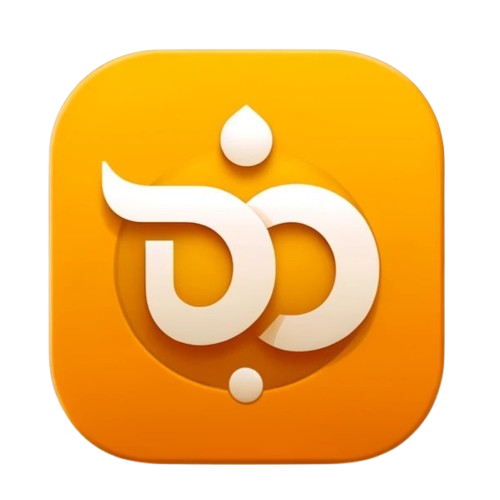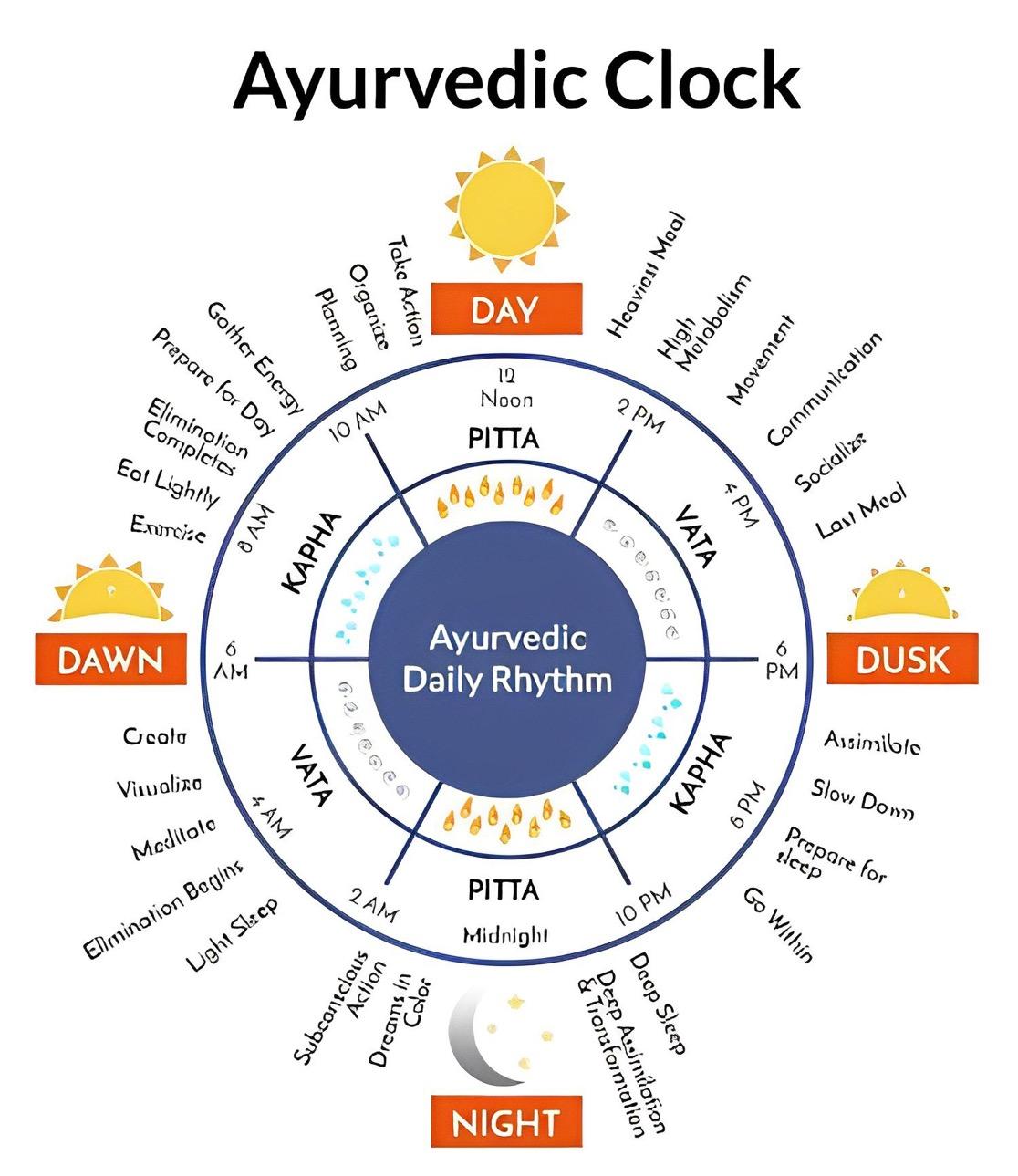The Ayurvedic Clock...
Which divides the day into different time periods, each associated with specific doshas (Kapha, Pitta, and Vata)
and activities that align with the body’s natural rhythms. Here's a brief breakdown:
◆ 1. Dawn (Kapha Period) - 6 AM to 10 AM
Ideal time to gather energy, prepare for the day, complete elimination, eat lightly, and exercise.
◆ 2. Day (Pitta Period) - 10 AM to 2 PM
A good time for high-energy activities, organizing, planning, taking action, and having the heaviest meal as digestion is strongest.
◆ 3. Afternoon (Vata Period) - 2 PM to 6 PM
Best suited for communication, socializing, movement, and completing tasks that require creativity.
◆ 4. Dusk (Kapha Period) - 6 PM to 10 PM
Slow down, eat a lighter meal, prepare for rest, and transition to nighttime activities.
◆ 5. Night (Pitta and Vata Periods) - 10 PM to 6 AM
Deep sleep and transformation occur. Around midnight, deep assimilation and cleansing processes are active. Early morning hours (2-6 AM) are associated with light sleep and subconscious processing.
This rhythm supports optimal health by aligning daily habits with natural cycles.
Credit @TempleBeauty X
Which divides the day into different time periods, each associated with specific doshas (Kapha, Pitta, and Vata)
and activities that align with the body’s natural rhythms. Here's a brief breakdown:
◆ 1. Dawn (Kapha Period) - 6 AM to 10 AM
Ideal time to gather energy, prepare for the day, complete elimination, eat lightly, and exercise.
◆ 2. Day (Pitta Period) - 10 AM to 2 PM
A good time for high-energy activities, organizing, planning, taking action, and having the heaviest meal as digestion is strongest.
◆ 3. Afternoon (Vata Period) - 2 PM to 6 PM
Best suited for communication, socializing, movement, and completing tasks that require creativity.
◆ 4. Dusk (Kapha Period) - 6 PM to 10 PM
Slow down, eat a lighter meal, prepare for rest, and transition to nighttime activities.
◆ 5. Night (Pitta and Vata Periods) - 10 PM to 6 AM
Deep sleep and transformation occur. Around midnight, deep assimilation and cleansing processes are active. Early morning hours (2-6 AM) are associated with light sleep and subconscious processing.
This rhythm supports optimal health by aligning daily habits with natural cycles.
Credit @TempleBeauty X
The Ayurvedic Clock...
Which divides the day into different time periods, each associated with specific doshas (Kapha, Pitta, and Vata)
and activities that align with the body’s natural rhythms. Here's a brief breakdown:
◆ 1. Dawn (Kapha Period) - 6 AM to 10 AM
Ideal time to gather energy, prepare for the day, complete elimination, eat lightly, and exercise.
◆ 2. Day (Pitta Period) - 10 AM to 2 PM
A good time for high-energy activities, organizing, planning, taking action, and having the heaviest meal as digestion is strongest.
◆ 3. Afternoon (Vata Period) - 2 PM to 6 PM
Best suited for communication, socializing, movement, and completing tasks that require creativity.
◆ 4. Dusk (Kapha Period) - 6 PM to 10 PM
Slow down, eat a lighter meal, prepare for rest, and transition to nighttime activities.
◆ 5. Night (Pitta and Vata Periods) - 10 PM to 6 AM
Deep sleep and transformation occur. Around midnight, deep assimilation and cleansing processes are active. Early morning hours (2-6 AM) are associated with light sleep and subconscious processing.
This rhythm supports optimal health by aligning daily habits with natural cycles.
Credit @TempleBeauty X
0 Reacties
0 aandelen
2K Views
0 voorbeeld


